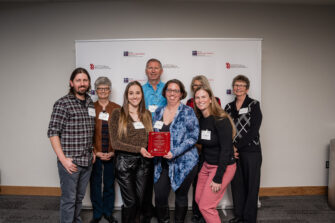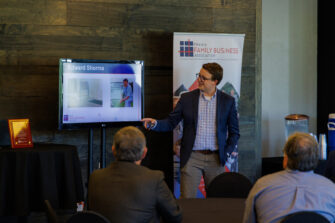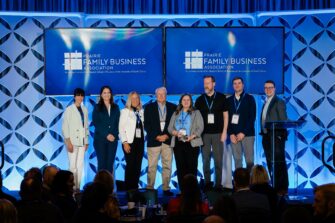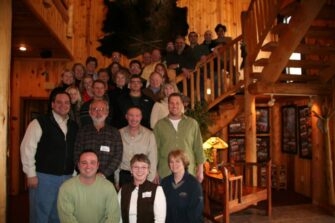Research shows these 3 elements are key to successful family business transitions
Recent News
Highly recommended family business speaker to share how ‘culture trumps everything’
Posted in PFBA | March 10, 2021
Like many business owners, Mark Moffatt has heard a lot of speakers.
But this one was different.
“I joined a Sioux Falls Vistage peer group awhile back and heard Dr. Gustavo Grodnitzky speak in February 2020. He was the best speaker I’d heard yet since joining,” said Moffatt, general manager of family-owned Moffatt Products in Watertown.
So when he learned the Prairie Family Business Association was looking for someone to speak about culture – one of the most-requested topics from its membership – Moffatt said Dr. Gustavo’s presentation would be perfect.
“Every Prairie Family Business Association member I’ve gotten to know cares about having a great culture,” Moffatt said.
“His content convinces you that it’s not just a nice feeling to work on culture but that it literally produces more profit. Simply put, when everyone at your organization loves your culture, they tend to show that in the way they interact with customers, vendors and the community at large.”
Fast-forward a little more than a year, and Dr. Gustavo Grodnitzky will be a keynote speaker at the annual Prairie Family Business Association conference April 29 and 30 focused on the topic “Culture Trumps Everything.”
“The title of Dr. Gustavo’s presentation says it all,” said Stephanie Larscheid, executive director of the Prairie Family Business Association.
“His approach to guiding any business, but especially family businesses, through the topic of culture is going to resonate with you and leave you with a plan to immediately take back to your organization.”
Grodnitzky, who goes by the name Dr. Gustavo, has spent the past two decades helping corporate clients, Global 1000 companies and family businesses of all sizes make lasting culture shifts.
“The culture in a family business is an extension of the culture in the family, particularly around traditions and rituals,” he said. “And let’s say not every family has a culture that is ideal for business. Sometimes, families make decisions based on family dynamics rather than what is best for the business.”
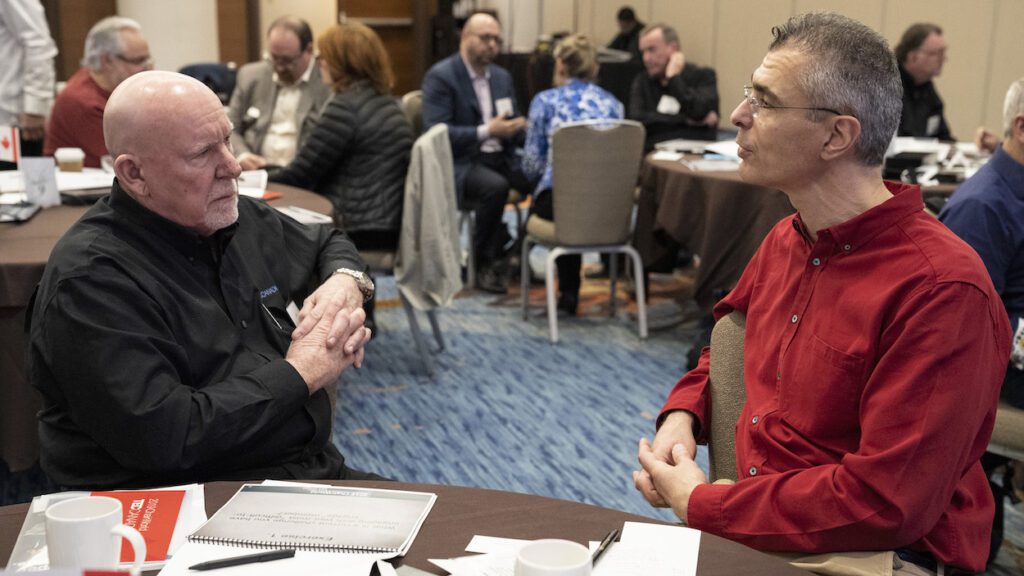
For instance, businesses that support or promote a family member “because of biology rather than their performance” tend to undermine high performers and create “a fertile ground for mediocrity,” he said.
Employees expect people in a family business to be promoted based on family connections, “so the family needs to go out of its way to undermine that expectation and show if people are promoted in the family it’s truly because of performance,” Grodnitzky said.
The other element of culture that figures heavily is cause, he continued.
“The drive to connect and to belong to something larger than ourselves – having a sense we have influence over community, society and humanity by how our product or service touches people, touches society,” he said. “What fulfills human beings’ desire to belong is a way to really move the family business beyond the family.”
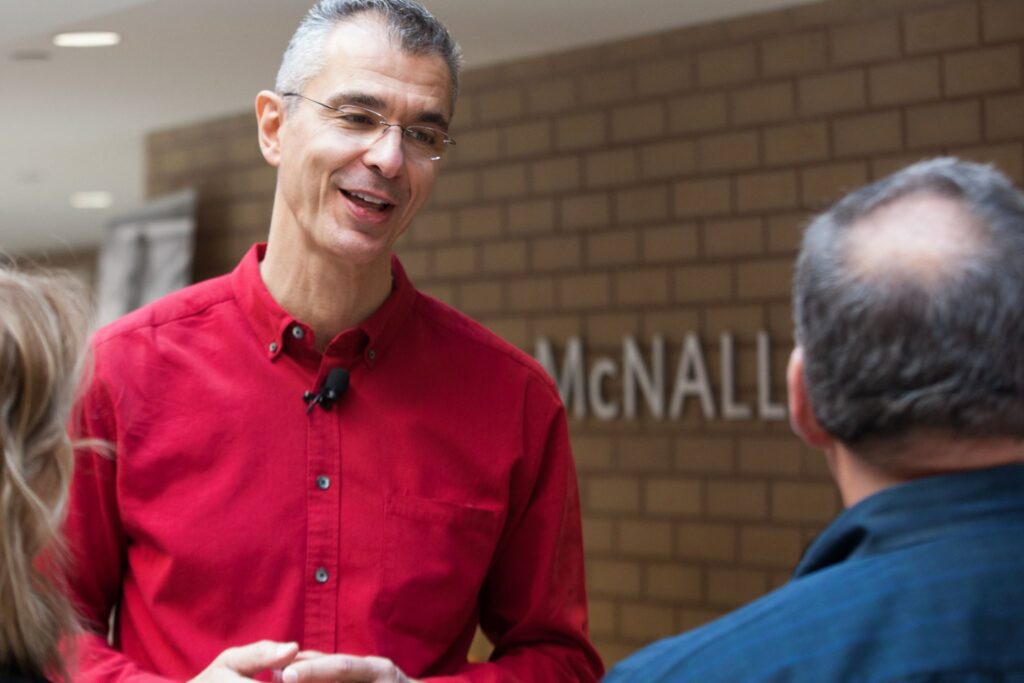
Traditionally, businesses focus on their mission, vision and values, but they need to also include cause, Grodnitzky added.
“People work harder for cause than for cash,” he said. “Cause drives behaviors that mission cannot.”
Culture also becomes the company’s vehicle to profit, he said.
“Companies that focus on profit first make less. Companies that focus on culture first make more. Culture trumps psychology and biology. Our culture can change our behavior and our biology, and ultimately culture is the competitive advantage in organizations.”
That was among many takeaways for Moffatt after hearing from Grodnitzky.
“People don’t resist change. They resist loss,” Moffatt said. “People welcome positive change but are resistant to losing things like their autonomy, choice, input and freedom. Policies limit behavior; culture drives behavior. So there’s a need to understand and maintain human connection as your company grows.”
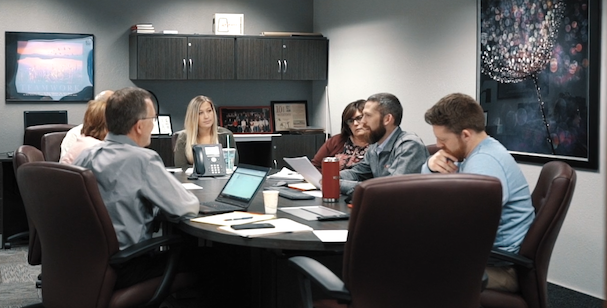
Attendees in April can expect a similar experience, he said.
“Dr. Gustavo’s presentation on culture was fun, engaging and gave me the tools I needed to tend the culture in my organization,” Moffatt said. “He reminded us that anyone can make positive culture-based statements, even with total strangers in public, to influence human behavior and lead well.”
But it’s not an overnight process. Grodnitzky said making meaningful culture change takes at least 12 to 18 months – and often more in a family business.
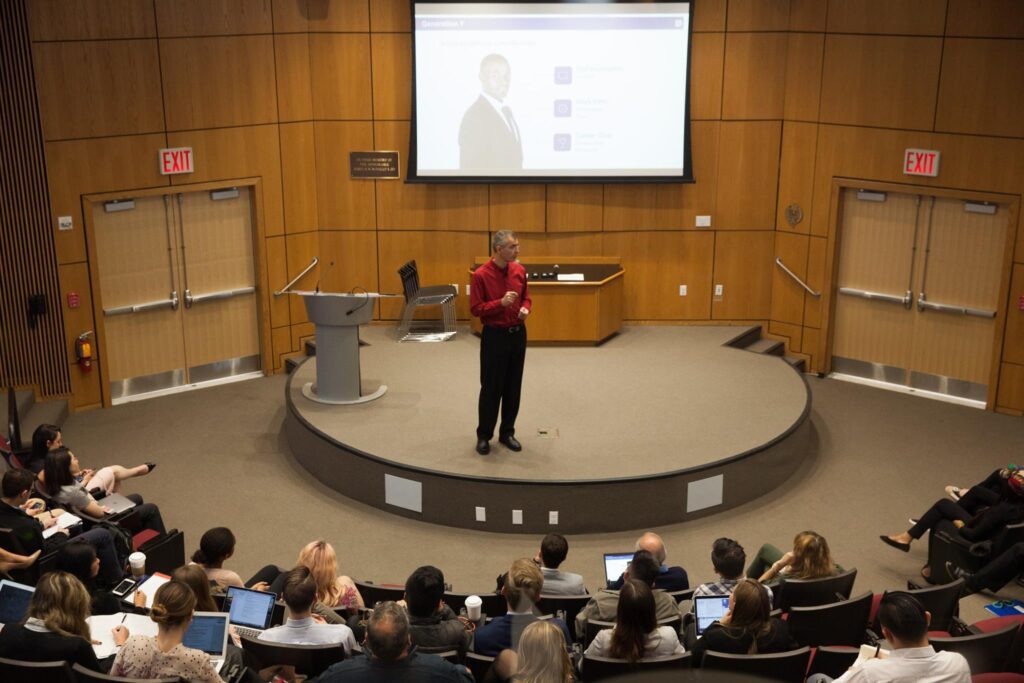
“You’re fighting against family dynamics, expectations of nonfamily members and the legacy culture that still exists,” he said. “Time is going to pass anywhere, so you might as well start today, or you’ll be in the exact same place 12 to 18 months from now.”
Thanks to the conference’s hybrid format, you can access it from anywhere during the event and for the entire month of May. To sign up and learn more, click here.
As an added bonus, Dr. Gustavo will offer a webinar for conference attendees in May entitled “Culture Trumps Everything Part II.” Three weeks after the conference presentation, he will provide additional insights and answer questions.

